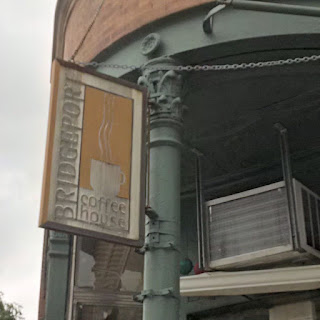Now I've found someone who's a winner in the hierarchy: Mindy Kaling, who has her own show and was previously a writer and actress on The Office.
I decided to read her book Why Not Me? because her first book, Is Everyone Hanging Out with Me?, was self-deprecating and funny. The second book is basically about how great her life is, how successful she is, how much money she has, how she's reaped the rewards of her hard work big-time (and oh, by the way, her mother died [brief mention] and she wants to be married). It doesn't have the same tone as her first book; instead, she sounds like she's celebrating herself while offering insights about the entertainment business along the way. But both books are well-written, so I can see why they're best-sellers.
What sort of struck me in her first book when she got The Office gig, and what really struck me here, was that she is at the top of the Hierarchy of Personality because she can express her intelligence, chattiness, and enthusiasm to people around her, in a variety of work and non-work contexts, and people like her for it. Usually in the Hierarchy, people can't be like her, unless the environment has given them permission. And if someone assumes they can break the rules, then they will be yelled at harshly (with swear words thrown in), ignored, or gossiped about while plans are made to send the person packing.
Her luck started early in her amazing career: when she was in LA having a kind of interview (or exploratory meeting; I don't know technically what you'd call it), she was sitting in an office of a powerful TV guy (the son of an even more powerful TV executive), who was in charge of The Office. He said, “I gave her a lot of room to shine and open up.” So right away her high position was being established. And it continued, because she said that they often argued in the writers room, and the worst thing that happened was she that was told to leave. She wasn't fired, she wasn't belittled, and she wasn't criticized for her personality traits. She was able to return to the room and resume her work; no punishment beyond that.
She describes her attitude during those early Hollywood years, and she says "...if I had a writer on my staff now who behaved like I did, I would throw them out...Though I deserved it probably dozens of times, Paul [the showrunner] never actually fired me.” So once again, her position in the Hierarchy was safe because her behavior didn't get her in trouble, and her career continued to flourish (and her social life, since she often talks about her many friends who she gets to work with or rub shoulders with at industry events).
I have to wonder: how does she feel when her staff dare to show their exuberant personality, or express strong disagreement about her show? Does her staff feel like they're in the lower rungs of the Hierarchy, thus have to suppress who they are and want to be?
She describes herself as "very chatty" with "a very anxious, argumentative personality.” People who are lower on the Hierarchy probably would admit that to their confidantes, but wouldn't feel they could admit it in a public forum, or in an official blog (which is why we of the lower caste have secret ones). Plus, being argumentative is reserved for the privileged, because you'd be called a derogatory name if you dared to disagree, especially vociferously, if you were not one of the chosen.
Interacting with her is probably pleasant, because she says that she's "a pretty fun person to talk to. I find almost everyone fascinating and I love to ask questions.” But only her employees know the truth, and I doubt they'd speak about the true experience beyond their closest confidantes. I wonder what they think when she talks about what she wants (one perk of being in her position), because she says "The single best thing about working in a writers’ room is that you can disrupt the entire process to discuss and investigate your latest crush.”
What if The Help were to disrupt a work session to talk about their latest crush? What if a loved one was dying, and they wanted to break out of their role to talk about more personal matters? I've seen that opportunity being enjoyed by the free, but the more tied-down have had to either keep it out of the workplace that has a hierarchical structure or only talk to those they trust (some places generate lots of allies, but the more toxic ones barely have a couple).
In case I ever cross paths with the blessed Hollywood powerhouse, I want to honestly say that I have nothing against Mindy Kaling; I'm just describing a situation that has confirmed what I theorized when I was working more in the radio biz. Some people have abused their position and have been heavy-handed in their domination, and I doubt she's one of those types of people. What she's achieved, beyond her amazing career, seems to be a rare accomplishment: the ability to be who she is and actually prosper and thrive with it. The unlucky ones are shut down and shut out, or are hindered in their attempt to progress towards their dream.










